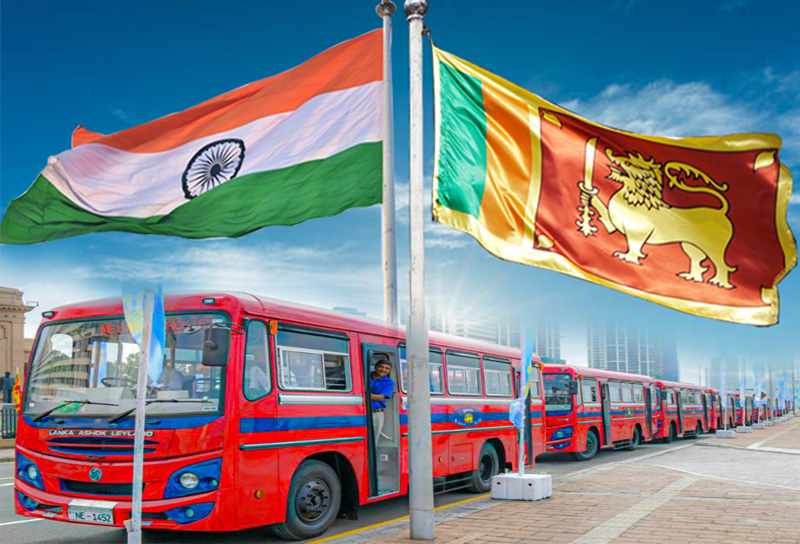
500 Bus import Allegations to Strain Indo-Lanka Ties, Public Benefits at Stake
- CNL Reporter
- January 13, 2025
- Political
- Bus import
- 0 Comments
News of the Day
The Indo-Lanka bus procurement deal, initiated in 2018 and completed five years later, has been mired in controversy with a recent government audit report alleging the parties involved of overspending a staggering Rs. 3.01 billion.
This revelation has brought about not just questions concerning financial mismanagement but also serves to potentially strain friendly ties between India and Sri Lanka.
Under the Indian Line of Credit, Sri Lanka procured 500 buses to upgrade its largely outdated fleet of public transport, since 52 percent of the buses had already run beyond their operational life.
These are to cater for urban, semi-urban, and rural areas with the aim of reducing the 1-3 km distance commuters have to walk to reach main roads.
The project was also to upgrade transport services on rural roads in all nine provinces, including North and East, on routes with adequate revenue streams to service the loan..
However, the audit report accuses that there was an overvaluation when purchasing 32-seater buses in 2023. According to the report each bus was bought for Rs. 11.02 million whereas similar buses were estimated at a cost of Rs. 5 million in 2018.
This difference of Rs. 3.01 billion has blown the lid off the less-than-transparent tender procedure.
Former Transport Minister Bandula Gunawardena has meanwhile urged that a impartial inquiry be conducted into the alleged scam, while ensuring that Indo-Lanka relations are not affected.
In a letter to Indian High Commissioner on January 08 , he has called for an impartial inquiry into the allegations, with copies to the Presidential secretary and relevant ministry secretaries.
The controversy partly arose from the digressions made on the original procurement plan. In 2018, Cabinet approved the acquisition of 400 buses with 50-54 seats and 100 buses with 32-35 seats using US$15.03 million from the Indian Line of Credit.
However, in 2020, the Sri Lanka Transport Board revised its requirements and decided it needed 500 smaller buses with 32-35-seaters and 100 bigger ones with 42-45 seaters. The revised plan was thus sanctioned by the Cabinet and also got the necessary clearance from the India Exim Bank.
The tendering process thereafter continued to drag on due to the COVID-19 pandemic.
The tendering process, which was initiated in August 2021, finally went in May 2022 to Ashok Leyland Ltd. of India. By then, the Sri Lankan rupee had weakened further against the dollar— Rs. 182 in 2018 to Rs. 360 in 2022—and added to the cost.
While global inflation, supply chain disruptions, and increased material cost might have justified the price increase, the audit appears to suggest that these factors in isolation cannot justify the overpayment of Rs. 3 billion.
The absence of comparative pricing analysis and delay in renegotiation of the terms point towards the governance gaps under successive regimes.
Gunawardena explained that the procurement followed the procedures approved by Cabinet, where India’s Exim Bank prequalified the suppliers.
The audit, however, refers to inefficiencies in the protection of public finance and emphasizes that foreign credit lines should be maintained in a more transparent manner.
Financial analysts said a proper investigation into the price revision for similar procurements in the same period is necessary to verify whether the price increase was justifiable.
This shows that there is an urgent requirement for streamlining procurement processes, competitive bidding, and increasing financial oversight to avoid such issues in future projects.
The episode illustrates the dual role of promoting public benefits, in this case, better transport services, while pursuing accountability for public money. Indo-Lanka relations cannot be preserved if charges of this nature are not tackled with clarity and alacrity

